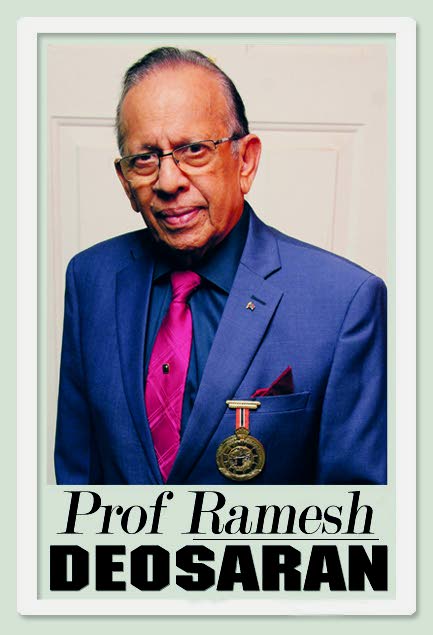The CJ, bullying and Leonce

Between Kamla Persad-Bissessar UNC’s strategic advertising rush and PM Stuart Young’s reddened advertising flourish towards April 29 – the day after the general election – two politically sensitive issues have arisen.
First, the Privy Council's ruling on Marcia Ayers-Caesar vs the Chief Justice and the Judicial and Legal Service Commission (JLSC) case which found Chief Justice Ivor Archie “exceeded his authority by pressuring Ayers-Caesar to resign as High Court judge or face disciplinary proceedings” by the JLSC. The “resignation letter” was prepared for Ayers-Caesar.
Adopting large parts of our Court of Appeal's ruling, the Privy Council found that such action in 2017 violated the constitutional process (Section 137) to deal with disciplinary proceedings against a judge. A related flaw in CJ Archie’s handling of the matter was that Ms Ayers-Caesar was not given a proper opportunity to respond to the “allegations” concerning the “case backlog” she left at the magistracy.
In fact, too many times the fundamental requirement of due process, for example, the right to respond, is being ignored by one authority or another, be it the workplace, political parties or even, as I have experienced, at the university (this for later).
The Privy Council's unanimous ruling implied that the former chief magistrate Ayers-Caesar was “bullied” into signing the prepared “resignation letter.”
While there are several aspects of this case, including those from our Appeal Court, another troubling one is the extent to which very senior public officials seem inclined to bully junior or even constitutionally protected officials. We had the illustrative case of Auditor General Jaiwantie Ramdass vs then minister of finance Colm Imbert which reached the Privy Council but now abandoned by the cabinet.
Probe the CJ and JLSC, shouted the lawyers. One of Ms Ayers-Caesar’s lawyers, Ramesh Lawrence Maharaj, SC, called on the government to inquire into the JLSC's role, hinting at resignations. Given the widespread criticisms from the opposition, the legal profession, notably placard-bearing Israel Khan SC, against the unlawful procedures used by the CJ and JLSC, the matter of public confidence in the judiciary arises.
Two things here. One, this Privy Council ruling, backed by section 137 in the Constitution, strikes a blow to the independence of our judiciary even against its own errors. This is no “pyrrhic victory.” Two, public confidence in the Privy Council by many citizens, once again, has climbed upwards blunting affections for the Caribbean Court of Justice.
The claim that this country and the Caribbean have lots of “talented and experienced lawyers and judges” fit for the CCJ now seems to have limited validity when, as reported, the CCJ has brought in a distinguished judge from Nigeria to sit on the CCJ. It appears that “judicial nationalism” has its limits.
Another public matter is the Minister of Housing Adrian Leonce’s questionable admission of “registering a UK-based company using another person’s address in that country” before terminating the company. In a media report, it was alleged this “other person” had “internal criminal ties” across several countries. UNC opposition members Anil Roberts and Saddam Hosein loudly called for Leonce’s resignation.
However, the mild-mannered former Laventille/East Morvant MP declared: “I categorically deny any involvement in any illegal activity either directly or indirectly.” Young briskly defended Leonce. This added political fire to the controversy. Wouldn’t it have been more politically astute if PM Young had held his hand and appointed an independent professional to interview Leonce, to examine the documents, etc, get a quick report and then pronounce?
It looked rather shaky when in a Guardian interview the chairman of the Integrity Commission, Haydn Gittens, said, “There is nothing preventing a government member from opening a business or becoming a director of a business,” He added “but there is a disclosure requirement as part of the Integrity in Public Life Act.” He continued: “Form B requires a disclosure if you have an interest which may or may not create a conflict.” Did Mr Leonce make the “disclosure?”
During the late 70s, the Ministry of Finance with Frank Barsotti as permanent secretary, led a crusade against ministers having businesses and accounts outside their portfolios. The objective was to have their accounts in a blind trust or business given to someone else to handle, etc. Why the ambiguity now?
Such issues were extensively discussed between the insightful host Michael Kerr (Mikey) and me during an interview on Gayelle television. The concluding point was whether a PNM or UNC government after April 29, the challenges are not only food, crime, forex, etc but governance, constitution reform and the administration of justice.

Comments
"The CJ, bullying and Leonce"